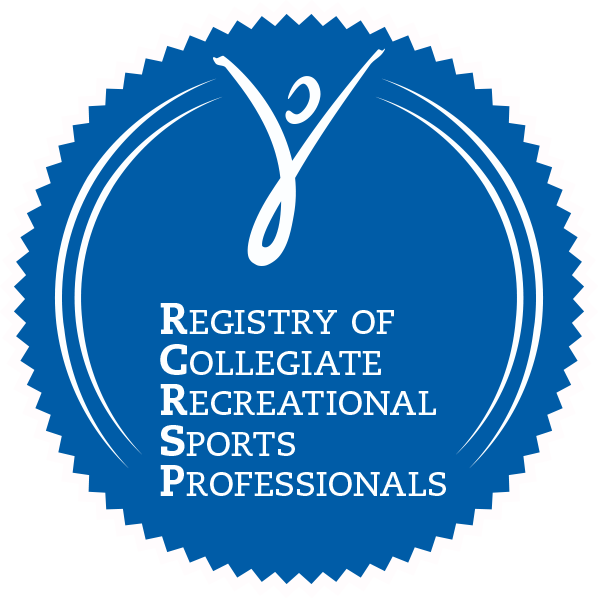NIRSA Core Competencies
Professional Competencies for Leaders in Collegiate Recreation
NIRSA Core Competencies
Program delivery to our communities is a core purpose for collegiate recreation professionals, and often appears in departmental and divisional missions. Although specific programs may vary from one institution to another, professionals need to be able to develop and administer high quality programs and to appropriately apply associated resources.
- Specialized programming (aquatics, fitness, etc.) or programming for special population.
- Effective program development, scheduling, and delivery.
The Philosophy & Theory competency area involves knowledge and skills that connect the philosophy and theory to professional practice. Informing our practice through the use of existing frameworks and development of new frameworks provides the context for best practices. As we operate in a higher education environment, our work gives us the high-powered opportunity to apply the process of praxis.
- Trends in recreational sports, and health and wellness theories and models
- Professionalism and ethics
- Student Development Theory
- Participation-based philosophical perspectives
- The CAS Standards for Recreational Sports Programs
- Standards of Practice, issues of equity and diversity, and Student Affairs issues and theories
The Personal & Professional Qualities competency area involves the knowledge, skills, and attitudes to inform individual conduct and apply these tools toward productive work and interaction; awareness of one’s own areas of strengths and areas for development; be committed to lifelong learning; to assimilate integrity and ethics into all aspects of personal and professional self.
- Problem solving
- Prioritization
- Adaptability
- Networking
- Analytical skills
With the inherent risk involved with collegiate recreation activities and the litigious nature of our society, collegiate recreation professionals must be able to identify and manage risks. With experience, professionals will need to be able to understand liability and manage risk at more sophisticated levels.
- Risk management/crisis management
- Injury liability
- Sports waivers/consent
- The legal process
- Insurance coverage and plans
The Management Techniques competency area involves the knowledge, skills and abilities to be an effective supervisor/ manager for human resources; to create a productive workplace with efficient policies and procedures and to train and develop staff.
- Ethical behavior, customer service principles, or motivational skills
- Applying current technologies to your organization
- Governance structures such as due process
- Application of the following skills:
- Staff/student development
- Leadership development
- Budgeting/accounting
- Staff selection & training
- Personnel/human resources management
- Organizational development
- Conflict resolution
- Group facilitation
Facility Management in the field of campus recreation covers a broad scope of skill sets needed to successfully operate, maintain and plan new attractive, safe and fully operable built environments. Administration, facility operations, energy/utilities management, building design and construction are essential skills at every level of employment.
- Development of policies and procedures
- Event management
- Facility operations/management
- Facility life-cycling (maintenance, renewal, enhancement)
- Equipment knowledge, including replacement principles
- Facility planning & design
- Identifying appropriate vendors
Business Management in the field of campus recreation covers a broad scope of skill sets needed across disciplines within our field. Communicating, planning, marketing, managing resources, strategic relationship building, and utilizing appropriate technology are essential business management skills at every level of employment.
- Verbal/written communication skills
- Establishing partnerships
- Administrative/executive leadership development
- Strategic planning & analysis principles
- Policy of development & implementation
- Public Relations and marketing techniques/principles
- Resource acquisition and allocations
- Debt management, financing, building reserves, revenue generation, and development
- Understanding of sustainability, such as the interconnections of economy/society/environment
Accountability in higher education is achieved through data-informed decisions and objective reporting of program outcomes. As a profession, collegiate recreation must continue generating research that increases knowledge that advances the profession. The general trend of increasing complexity of knowledge and skills in research and evaluation shows a progression from being able to participate, interpret, and apply findings to being able to conceive of and direct research, assessment, and evaluation processes. At the more complex level, one should be able to direct others in conducting research, assessment, and evaluation activities, participate in more sophisticated studies, conduct meta analyses of multiple data sets, and communicate results to garner program support and resources.
- Program Assessment
- Organization
- Assessment/evaluation techniques or applications
- Benchmarking/best practices
- Applied recreational sports research
- Disseminating results in writing
- Data analysis processes/procedures


